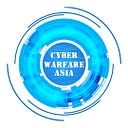Misinformation Campaigns are Gaining Traction in the Middle East
Over the past decade, the evolution of technology and social media has subsequently transformed the Middle East. The democratic activists in the region were the first that opted social media platforms to spread their agenda. And, in view of their successes, other countries soon followed the pattern, exploiting the power of platforms like Twitter and Facebook, to gain political advantages.
Recently, Iran was accused of interfering in Scottish Parliamentary election, spreading misinformation online. It had been meant to assist the pro-independence parties and destabilise the UK. In the context of Iran’s growing cyber activities, Henry Jackson Society, a UK-based national security think tank, published a report that revealed hard truths about Iran.
The report stated that several elements within Iran, including the IRGC are willing to attack the constitutional integrity of the UK, starting by interfering in its domestic politics. It’s not the first time when the Middle Eastern countries had indulged themselves into misinformation activities. They have long been taking help from both the domestic and foreign firms to run influence campaigns against their adversaries.
Earlier this year, the UAE signed contracts worth millions of dollars with Pluteos AG — a Swiss Corporate Intelligence Firm long active in the country — to lead influence campaigns in Europe against Qatar. This took place even after the Gulf Cooperation Council’s summit in Al-Ula, Saudi Arabia announced the restoration of ties with Qatar.
Previously, Qatar too was found running influential campaigns against its enemies. During the 2020, Qatar came out strongly against the UAE and Israel’s historic normalisation agreement, mediated by the US. Qatar’s pro-government newspaper — Al-Sharq mischaracterised the deal, emphasising upon Palestinian outrage and spreading the UAE criticisms.
Moreover, Qatar also launched campaigns against adversaries on cases involving the International Football Federation Association (FIFA) and the attack of pro-Emirati journalist and lobbyists such as Ghanem Nuseibeh’s Cornerstone Global with the help of Italian consultant-journalist Paolo Fusi. Other powerful Middle Eastern countries have followed suit.
In 2019, Facebook found and removed a separate, unconnected network of accounts with almost 14 million followers, run by several marketing firms in the UAE and Egypt. These accounts paid $167,000 on ads on Facebook and targeted the audiences in the MENA region. They posted about Qatar and Turkey’s undisputed support to the terrorist groups, Iranian activities in Yemen and in the Libyan conflict, successes of Saudi-led coalition in Yemen, and about Somaliland’s independence and recognition by international communities.
Similarly, Facebook also found evidences of covert campaigns run by people associated with the Saudi government. By spreading misinformation through the Facebook and Instagram platforms, these campaigns generated support for the Kingdom, while attacking its enemies.
